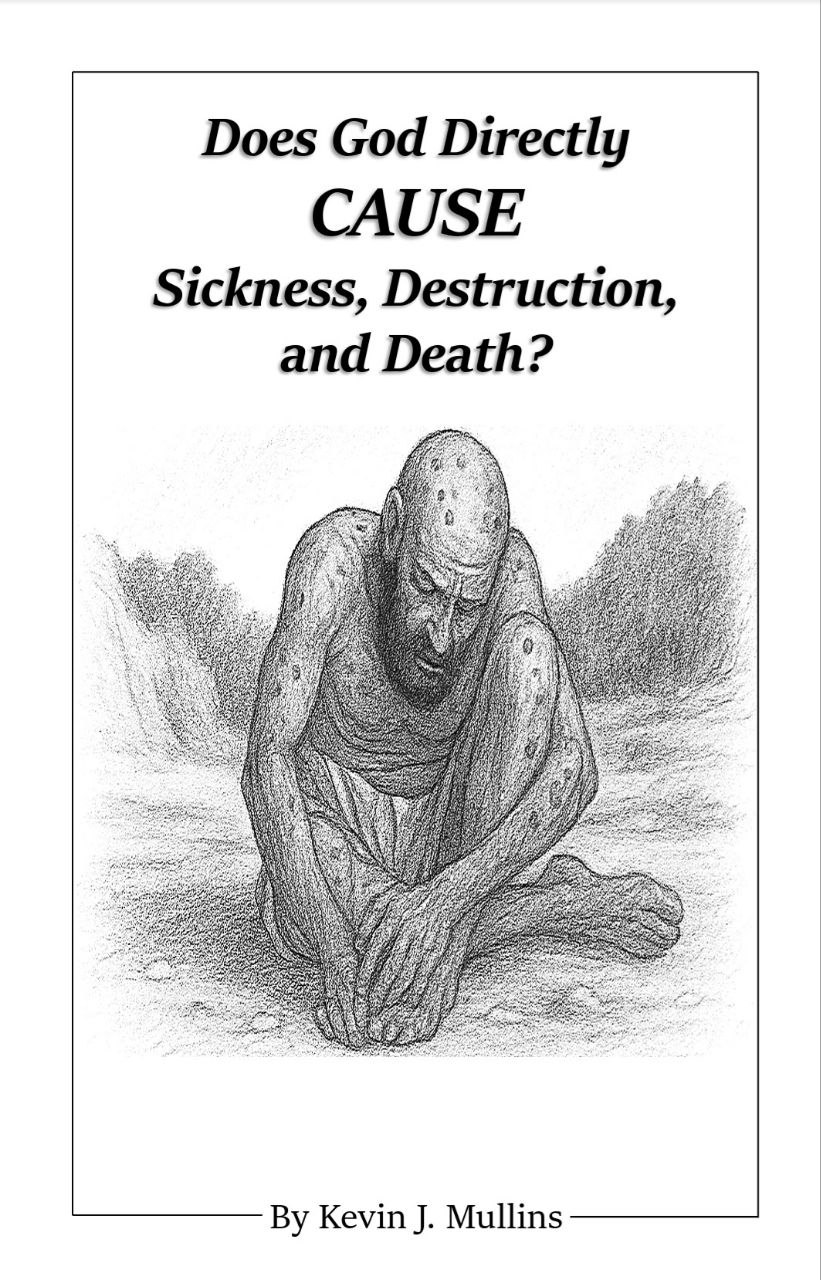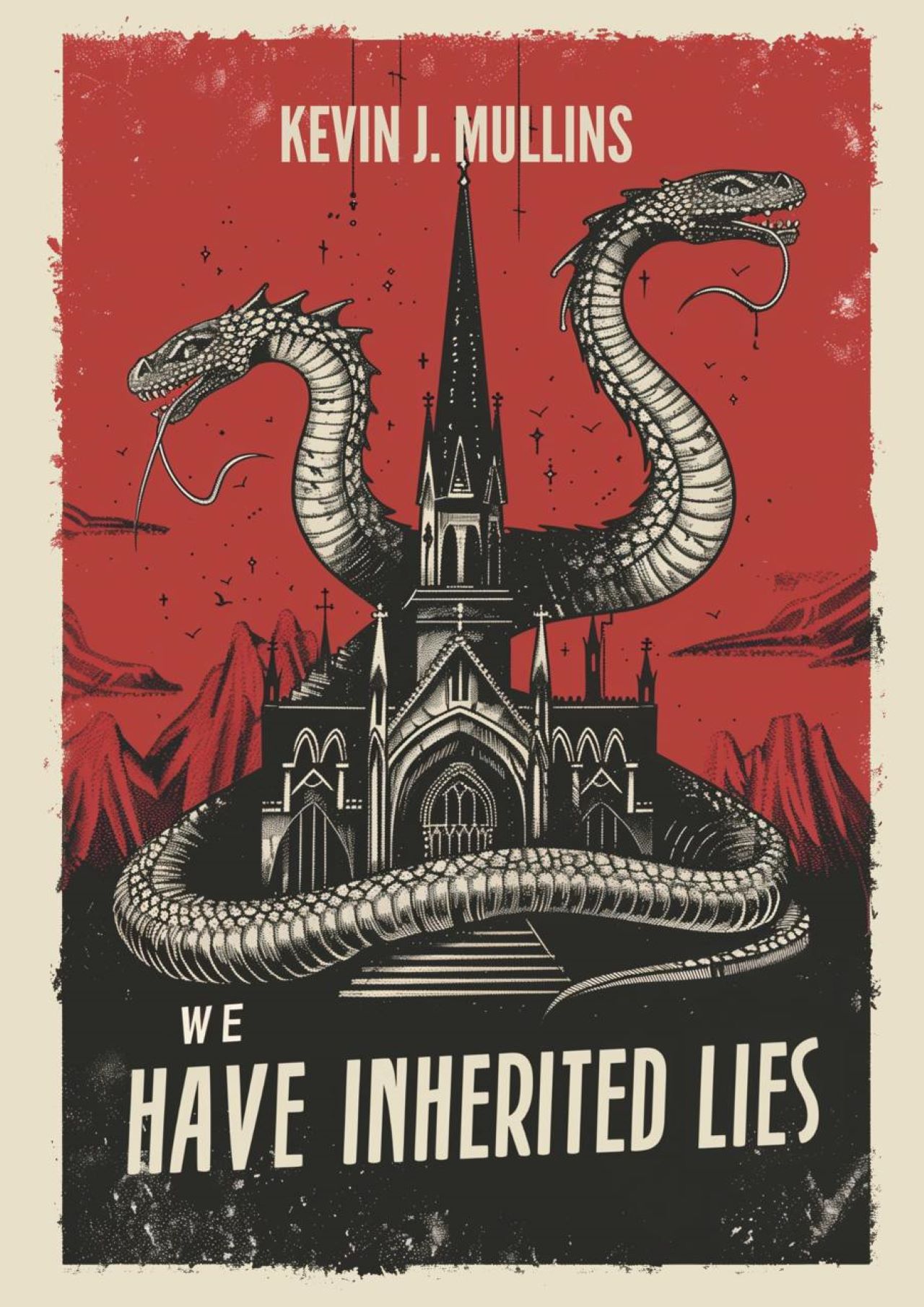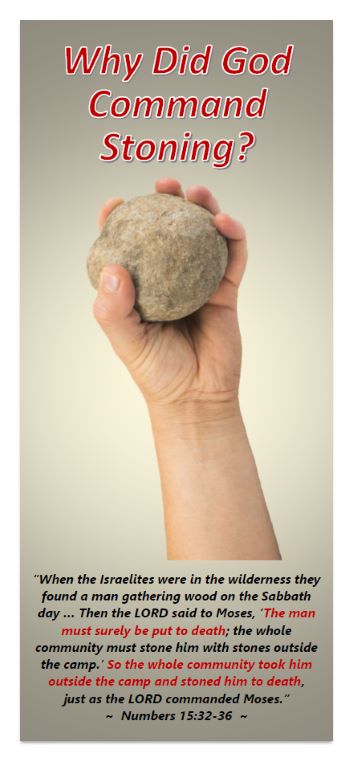What is God's Wrath?
“The LORD is a jealous and avenging God; the LORD is avenging and full of wrath. The LORD takes vengeance on His foes and reserves wrath for His enemies.” (Nahum 1:2)
 Surely, this passage of Scripture has been used to cause fear in all those who cling to their darling little sins. “You better shape up or God is gonna get you on the day of His wrath!” yells the preacher. Not only does fear become the motivator, but fear against an angry Father who is out to get, abuse, and kill His wayward child. Most people may object to my tone here and exclaim, “It’s not abuse, it’s divine justice!” In an article entitled, The Wrath of God, The Gospel Coalition explains their understanding of God’s wrath:
Surely, this passage of Scripture has been used to cause fear in all those who cling to their darling little sins. “You better shape up or God is gonna get you on the day of His wrath!” yells the preacher. Not only does fear become the motivator, but fear against an angry Father who is out to get, abuse, and kill His wayward child. Most people may object to my tone here and exclaim, “It’s not abuse, it’s divine justice!” In an article entitled, The Wrath of God, The Gospel Coalition explains their understanding of God’s wrath:
“As God warned Adam, ‘in the day that you eat of this tree, you will surely die’ (Gen. 2:17). Death entered the world through Adam’s one sin (Rom. 5:12). And sin has always brought about the holy wrath of God. Long before the word ‘wrath’ is found in the Bible, divine wrath is witnessed in human history. Death is God’s punishment upon all sin (Rom. 5:12–21; 6:23), and as Moses reflects in Psalm 90, the brevity of life is a mark of God’s wrath that stands over all humanity. In this way, God’s wrath is a common and inescapable reality in our sin-cursed world. … What we find in the Old Testament is that God’s anger towards sin is real and deadly. Adam and Eve’s exile from Eden (Gen. 3), the cosmic flood (Gen. 6–9), the destruction of Sodom and Gomorrah (Gen. 19), the defeat of Pharaoh and his army in the Red Sea (Exod. 14–15), and the incineration of Nadab and Abihu (Lev. 10) are all examples of God’s wrath. Though only Leviticus 10:6 uses a word translated ‘wrath,’ each of these instances display God’s zeal for his holiness. God cannot withstand sin, and while he may delay his justice, he will not deny his holiness.” (The Wrath of God, thegospelcoalation.com)
First of all, after reading the above article, I get the impression that the author is teaching that the death of the sinner comes directly from God. When he states that “God warned Adam, ‘in the day that you eat of this tree, you will surely die’”, it doesn’t appear he means that God is warning Adam about the natural consequences of sin, but warning him about what He (God) will do to him if he eats from the tree. Instead of warning that “sin, when it is full-grown, brings forth death” (James 1:15), or that “he who sows to his flesh will of the flesh reap corruption” (Galatians 6:8), God is actually threatening to kill Adam. In other words, if Adam disobeys Him, God will become angry (wrathful) and, because “death is God’s punishment upon all sin”, the death Adam will experience will come directly from God and not directly from sin. Therefore, in actuality, God’s judgment isn’t really “upon all sin”, but upon all sinners.
Is this not what Satan meant when he told Eve, “You will not surely die” (Genesis 3:4)? By saying these words, he was deceiving Eve to believe that she had life in and of herself and, if she were to die, it would have to come from an outside source— God! All human beings have been infected with this lie, inherited from our first parents. Therefore, when we are in the presence of God, we are automatically fearful of Him:
"And they heard the sound of the Lord God walking in the garden in the cool of the day, and Adam and his wife hid themselves from the presence of the Lord God among the trees of the garden. Then the Lord God called to Adam and said to him, ‘Where are you?’ So he said, ‘I heard Your voice in the garden, and I was afraid because I was naked; and I hid myself.’" (Genesis 3:8-10)
Why were they afraid? Because they believed that God was coming to execute the death penalty upon them! Is this not what the above article is teaching?
This is yet another case of fallen man believing God’s Law operates like human law with arbitrary rules that demand imposed legal punishments upon the offender. They fail to see that God’s Law is a Law of design built into the very fabric of creation, and any deviation from this design results is natural consequences. Instead, sin is defined as a legal crime which angers the Lawgiver who must, in justice, lash out to annihilate the offender. It is true that “Adam and Eve’s exile from Eden (Gen. 3), the cosmic flood (Gen. 6–9), the destruction of Sodom and Gomorrah (Gen. 19), the defeat of Pharaoh and his army in the Red Sea (Exod. 14–15), and the incineration of Nadab and Abihu (Lev. 10) are all examples of God’s wrath”, however it is not in the sense that this author is describing. Although I will not discuss these specific events in detail in this article, you can read about them at the following links:
- Did God Really Drown Millions of People in the Flood?
- Did God Send Angels to Kill the Inhabitants of Sodom and Gomorrah?
- Who Really Killed the Firstborn in Egypt?
As to the case of Nadab and Abihu, Scripture does not say they were incinerated as this author suggests. It says they were “consumed” yet were carried out of the sanctuary “still in their coats [tunics]” (Leviticus 10:5). For further proof of this, and to understand what really happened, please refer to the article entitled, Doesn’t the Bible Say That God Will Burn and Torture People “Forever and Ever”?
Now, it is true that death can come from an outside source, but as the divine Law of righteousness says, if you “love your neighbor as yourself”, “you will not kill” them no matter how they treat you (Exodus 20:13; Leviticus 19:18). Anyone possessing the Spirit of Christ will live in harmony with His instructions to “love your enemies and do good to them” (Luke 6:35a). When we live according to this design protocol, we are living as “children of the Most High, for He is kind to the unthankful and to the evil” (Verse 35b). Therefore, if anyone purposefully kills you, it is because they are sinful (i.e., transgressors of the Law, 1 John 3:4) and do not love you; for “love never hurts anyone” (Romans 13:10).
God’s Wrath vs. Man’s Wrath
In order to truly understand God’s wrath, we must all submit to the following fact:
“For My [God’s] thoughts are not your thoughts, neither are your ways My ways, saith the LORD. For as the heavens are higher than the earth, so are My ways higher than your ways, and My thoughts than your thoughts.” (Isaiah 55:8, 9)
It is most important here to define God’s wrath (anger). Taking into consideration that our ways are not His ways, we understand that God’s wrath is going to be completely opposite to our way of revealing wrath and anger. In James 1:20 the King James Version says, “For the wrath of man worketh not the righteousness of God.” This clearly shows man’s way of wrath is nowhere near the righteousness of God because, ever since Adam’s sin, mankind falls short of the glory of God (Romans 3:23). The International Standard Version (ISV) says it this way, “For human anger does not produce the righteousness that God desires.” Again, human anger is much different from God’s anger. The Miriam-Webster Dictionary defines wrath as:
- “strong vengeful anger or indignation”
- “retributory punishment for an offense or a crime : divine chastisement”
Since this is the human definition of wrath, we know that it is not God’s wrath. After learning what his two sons (Simeon and Levi) did when they tricked the men of Shechem and killed them with the sword out of vengeful anger (Genesis 34), Jacob said, “Simeon and Levi are brothers; weapons of violence are their swords … Cursed be their anger, for it is fierce, and their wrath, for it is cruel! … ” (Genesis 49:5,7). Clearly, even though what the men of Shechem did to their sister Dinah was evil and cruel, Simeon’s and Levi’s anger and wrath, designed to bring retributory punishment for the offense, was not in harmony with God’s righteous wrath and anger.
So how do we explain God’s wrath, especially when we read about the horrible things that happen when He exercises it? Is it simply because He is God and can do whatever He wants so don’t question Him? Of course not! Instead of projecting our own definitions and ideologies onto God, let’s do as God instructs and “‘Come now, and let us reason together,’ says the LORD” (Isaiah 1:18). To do this, let’s look at a few examples in Scripture of how God truly expresses His wrath.
God’s Wrath = The Hiding of His Face
“In a little wrath I hid My face from thee for a moment; but with everlasting kindness will I have mercy on thee, saith the LORD thy Redeemer.” (Isaiah 54:8)
 Here we see that God expresses wrath by hiding His face. This hiding is not in disgust but due to His intense sadness. One Hebrew word for God’s anger is אַף (aph) which is the same root word for His “longsuffering” (anaph) toward sinful man. It means an intense heavy breathing (grief) through the nostrils. We see this grief connected to wrath and anger in the life of Jesus:
Here we see that God expresses wrath by hiding His face. This hiding is not in disgust but due to His intense sadness. One Hebrew word for God’s anger is אַף (aph) which is the same root word for His “longsuffering” (anaph) toward sinful man. It means an intense heavy breathing (grief) through the nostrils. We see this grief connected to wrath and anger in the life of Jesus:
“And He [Jesus] entered again into the synagogue; and there was a man there which had a withered hand. And they [the Pharisees] watched Him, whether He would heal him on the Sabbath day; that they might accuse Him [of breaking their own rigid requirements]. And He saith unto the man which had the withered hand, Stand forth. And He saith unto them, Is it lawful to do good on the Sabbath days, or to do evil? to save life, or to kill? But they held their peace. And when He had looked round about on them with ANGER, being GRIEVED for the hardness of their hearts, He saith unto the man, Stretch forth thine hand. And he stretched it out: and his hand was restored whole as the other. And the Pharisees went forth, and straightway took counsel with the Herodians against Him, how they might destroy Him.” (Mark 3:1–6, words in brackets added)
This is an encounter Jesus had with the Pharisees. Their legalistic restrictions prohibited healing on the Sabbath day. Jesus, reading their hearts, “looked round about on them with anger.” What kind of anger did Jesus have? The kind that is described as “being grieved for the hardness of their hearts.” Jesus was experiencing grief or deep sadness at the lack of love and sympathy demonstrated by these pitiless religious leaders for the man with the withered hand.
What we also must keep in mind is that Jesus is “the brightness of His [God’s] glory, and the express image of His person” (Hebrews 1:3). When Philip asked Jesus to show them the Father, Jesus replied, “Have I been with you so long, and yet you have not known Me, Philip? He who has seen Me has seen the Father …” (John 14:9). Jesus is not claiming to be God, the Father, but is saying that everything He says and does is reflecting the Father’s character. The Father’s holy Spirit has been living in and through Him. “Do you not believe that I am in the Father, and the Father in Me? The words that I speak to you I do not speak on My own authority; but the Father who dwells in Me does the works” (John 14:10).
and the Father always acts Christ-like
“Hide not Thy face far from me; put not thy servant away in anger: thou hast been my help; leave me not, neither forsake me, O God of my salvation.” (Psalm 27:9)
Here we see another reason why God’s anger is connected to His deep sadness. David prayed that God would not put him away in anger, which he defines as God leaving him alone and not helping him. But why would God not help him? Since God will never force anyone to submit to His ways, He will always honor man’s free choice. If the persistent sinner rejects God’s grace, God will tearfully leave them alone. Although He does this in love, He will hide His face (His loving expressions) from them because they willfully refuse it. Again, God does not do this in vengeful disgust; He permits this to happen because they have chosen sin over Him.
“Behold, the LORD'S hand is not shortened, that it cannot save; neither His ear heavy, that it cannot hear: But your iniquities have separated between you and your God, and your sins have hid His face from you, that He will not hear.” (Isaiah 59:1-2)
It is sin that hides (clouds/veils) God’s face from us, deceiving us to believe that God will not hear us when we call out to Him. When we choose sin, God will honor our free choice and permit us to be deceived. He will permit us to believe that He has forsaken us.
“Let your conversation be without covetousness; and be content with such things as ye have: for He [God] hath said, I will never leave thee, nor forsake thee. So that we may boldly say, The Lord is my helper, and I will not fear what man shall do unto me.” (Hebrews 13:5-6)
By taking on our sinful nature, Jesus also experienced the weight of this deception on the cross and cried out, “My God, My God, why hast Thou forsaken Me?” (Matthew 27:46). Because of sin hiding God’s face, Jesus was unable to see His loving Father by His side. When Christ said these words, He was directing our attention to the book of Psalms:
 “My God, my God, why hast thou forsaken me? why art thou so far from helping me, and from the words of my roaring? O my God, I cry in the daytime, but thou hearest not; and in the night season, and am not silent.” (Psalm 22:1-2)
“My God, my God, why hast thou forsaken me? why art thou so far from helping me, and from the words of my roaring? O my God, I cry in the daytime, but thou hearest not; and in the night season, and am not silent.” (Psalm 22:1-2)
What many fail to see is that Jesus wasn’t just calling our attention to these first two verses, but He wants us to read the entire chapter, which unquestionably foretold of His sufferings. I believe Jesus was especially directing us to what is written in verse 24:
“For He [God] hath not despised nor abhorred the affliction of the afflicted; neither hath He hid His face from him; but when he cried unto Him, He heard.”
Even though Jesus could not see His Father’s face nor sense His tender love, Jesus held on by faith and cried out, “‘Father, into your hands I commit My spirit!’ And having said this He breathed His last” (Luke 23:46). Unlike Adam in the Garden, Jesus gained the victory over fear that sin causes. This is why it is paramount that we receive “the faith OF Jesus” (Revelation 14:12) and “live by the faith OF the Son of God” (Galatians 2:20). When we receive the faith of Jesus, we will no longer fear that God abandons us.
“I messed up, I need to call my dad.”
The intense sadness that God feels is when people rely more on their fear instead of embracing the faith of Jesus that relies fully upon God’s love which casts out fear (1 John 4:18).
God’s Wrath = His Presence Departs
“And the LORD said unto Moses, Behold, thou shalt sleep with thy fathers; and this people will rise up, and go a whoring after the gods of the strangers of the land, whither they go to be among them, and will forsake Me, and break My covenant which I have made with them. Then My anger shall be kindled against them in that day, and I will forsake them, and I will hide My face from them, and they shall be devoured, and many evils and troubles shall befall them; so that they will say in that day, Are not these evils come upon us, because our God is not among us?" (Deuteronomy 31:16-17)
How is it that we just learned that God will never forsake us, but here we read that He will? We must remember that it is the disease of sin that deceives us by warping our minds (our perceptions) of God’s character causing us to believe this. But again, is it not God saying this— “I will forsake them”? Is He not retaliating with vengeance? It appears that God is “getting even” with them for forsaking Him. God said, “they will forsake Me” therefore, “I will forsake them.” But let's look at the definition of “forsake”:
Forsake עזב ‘azab aw-zab’
a primitive root; v;
AV-forsake 129, leave 72, leave off 4, faileth 2, fortify 2, help 2, committeth 1, destitute 1, refuseth 1, surely 1; 215
1) to leave, loose, forsake
1a) (Qal) to leave
1a1) to depart from, leave behind, leave, let alone
1a2) to leave, abandon, forsake, neglect, apostatise
1a3) to let loose, set free, let go, free
When the people are forsaking God, they are doing it according to definition 1a1 “to depart from, leave behind, leave, let alone.” They are completely abandoning God by worshipping other gods. However, when God is said to “forsake”, He is doing it according to definition 1a3 “to let loose, set free, let go, free.” He is reluctantly giving them over (setting them free, letting them loose) to their own desires. The Webster's 1828 Dictionary says, “In scripture, God forsakes his people, when he withdraws his aid, or the light of his countenance.” The consequence of this is not that God attacks them in vengeful wrath, seeking to cause them harm, but that all the evils that come upon them are because God is not among them— no longer protecting them per their request (see again Deuteronomy 31:17).
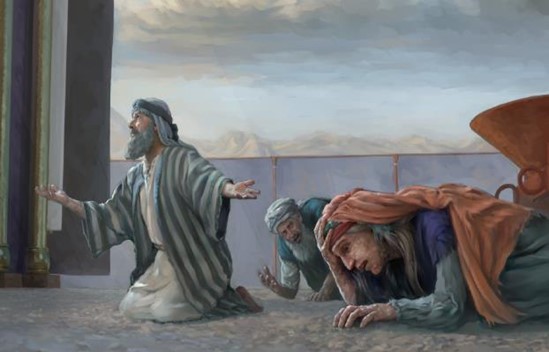 We see this concept again when Aaron and Miriam spoke against Moses:
We see this concept again when Aaron and Miriam spoke against Moses:
“And the anger of the LORD was kindled against them; and He departed. And the cloud departed from off the tabernacle; and, behold, Miriam became leprous, white as snow: and Aaron looked upon Miriam, and, behold, she was leprous.” (Numbers 12:9-10)
When the Lord’s anger was kindled (aroused) He tearfully and reluctantly “departed.” It was because He departed (removed His protection) why Miriam became leprous. This echoes what we read from Deuteronomy above of what happens when God’s anger is aroused— “they shall be devoured, and many evils and troubles shall befall them; so that they will say in that day, Are not these evils come upon us, because our God is not among us?” Once again, we see that the sicknesses and troubles are not caused by God lashing out to cause anyone harm.
In Jeremiah chapter 6, we also read about God’s wrath against His wayward people.
“Be thou instructed, O Jerusalem, lest My soul depart from thee; lest I make thee desolate, a land not inhabited.” (Jeremiah 6:8)
Destruction would come upon Jerusalem, not by the direct hand of God, but due to His departing from them. When God departs, they will become desolate of His sustaining power. Jesus reminds them of this when He warned:
“O Jerusalem, Jerusalem, who kills the prophets and stones those sent to her, how often I have longed to gather your children together, as a hen gathers her chicks under her wings, but you were unwilling! Look, your house is left to you desolate. For I tell you that you will not see Me again until you say, ‘Blessed is He who comes in the name of the Lord.’” (Matthew 23:37-39)
This is why, “As Jesus approached Jerusalem and saw the city, He wept over it and said, ‘If only you had known on this day what would bring you peace [speaking of Himself]! But now it is hidden from your eyes’” (Luke 19:41-42, words in brackets added). They had refused His protection, thus in His wrath (intense grief), He hid His face from them (departed) at their request and they were left desolate (without His protection). This should also help us understand what exactly was going on during the time of the Flood:
“Hast thou marked the old way which wicked men have trodden? Which were cut down out of time, whose foundation was overflown with a flood: Which said unto God, Depart from us: and what can the Almighty do for them?” (Job 22:15-17)
God’s Wrath = He Gives them What They Selfishly Desire
In Exodus 4:10–13, Moses was fearful of going in before Pharaoh alone and requested a spokesman. How did God respond?
“And the anger of the LORD was kindled against Moses, and He said, Is not Aaron the Levite thy brother? I know that he can speak well. And also, behold, he cometh forth to meet thee: and when he seeth thee, he will be glad in his heart. And thou shalt speak unto him, and put words in his mouth: and I will be with thy mouth, and with his mouth, and will teach you what ye shall do.” (Exodus 4:14-15)
How did God express His anger against Moses’ lack of faith? Did He lash out to cause Moses harm? Did He punish him with a disease? No, He gave Moses what he wanted— a spokesperson.
Here's another example:
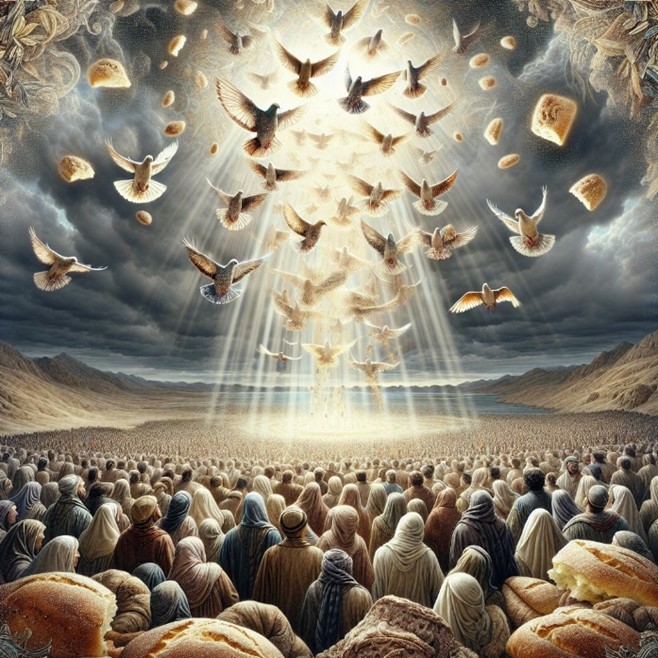 “And the mixt multitude that was among them fell a lusting: and the children of Israel also wept again, and said, Who shall give us flesh to eat? … Then Moses heard the people weep throughout their families, every man in the door of his tent: and the anger of the LORD was kindled greatly; Moses also was displeased … And there went forth a wind from the LORD, and brought quails from the sea, and let them fall by the camp … And the people stood up all that day, and all that night, and all the next day, and they gathered the quails: he that gathered least gathered ten homers: and they spread them all abroad for themselves round about the camp. And while the flesh was yet between their teeth, ere it was chewed, the wrath of the LORD was kindled against the people, and the LORD smote the people with a very great plague.” (Numbers 11:4, 10, 31–33)
“And the mixt multitude that was among them fell a lusting: and the children of Israel also wept again, and said, Who shall give us flesh to eat? … Then Moses heard the people weep throughout their families, every man in the door of his tent: and the anger of the LORD was kindled greatly; Moses also was displeased … And there went forth a wind from the LORD, and brought quails from the sea, and let them fall by the camp … And the people stood up all that day, and all that night, and all the next day, and they gathered the quails: he that gathered least gathered ten homers: and they spread them all abroad for themselves round about the camp. And while the flesh was yet between their teeth, ere it was chewed, the wrath of the LORD was kindled against the people, and the LORD smote the people with a very great plague.” (Numbers 11:4, 10, 31–33)
Here again we see God’s anger and wrath at work. Please note that God’s anger is again expressed by God giving them exactly what they wanted— flesh to eat. Referring to the quail, the psalmist writes:
“He caused an east wind to blow in the heaven: and by His power He brought in the south wind. He rained flesh also upon them as dust, and feathered fowls like as the sand of the sea: And He let it fall in the midst of their camp, round about their habitations. So they did eat, and were well filled: for He gave them their own desire.” (Psalm 78:26-29)
over to that which he selfishly desires
It is expressed as “wrath” and “anger” because God experienced intense grief knowing that He was giving them over to something that was not good for them. In the case of Moses, it was not good that Aaron became his spokesperson, and we see this in the incident of the golden calf where it was Aaron who made the calf and led the people to say, “This is your god, O Israel, that brought you out of the land of Egypt!” (Exodus 32:4). In the case of the quail, Moses wrote, “the wrath of the LORD was kindled against the people, and the LORD smote the people with a very great plague” (Numbers 11:33).
God’s Wrath = People Being Struck with Plagues and Death
Now, what does Moses mean by stating, “The LORD smote the people with a very great plague” (Numbers 11:33)? Clearly God is lashing out to cause harm here, right? Not so fast. You must always keep in mind that, when God’s wrath is kindled (or aroused), He departs. Therefore, could this mean that God “smote” them by not interfering with the consequences of their own free choice? Let’s look at a perfect example of this in the death of king Saul:
“So Saul died for his transgression which he committed against the LORD, even against the word of the LORD, which he kept not, and also for asking counsel of one that had a familiar spirit, to inquire of it; And inquired not of the LORD: therefore He [God] slew him, and turned the kingdom unto David the son of Jesse.” (1 Chronicles 10:13-14)
Here we clearly read that God killed Saul. But how exactly did Saul die? Let’s read verses 3 through 6:
 “And the battle went sore against Saul, and the archers hit him, and he was wounded of the archers. Then said Saul to his armourbearer, Draw thy sword, and thrust me through therewith; lest these uncircumcised come and abuse me. But his armourbearer would not; for he was sore afraid. So Saul took a sword, and fell upon it. And when his armourbearer saw that Saul was dead, he fell likewise on the sword, and died. So Saul died, and his three sons, and all his house died together.” (1 Chronicles 10:3-6)
“And the battle went sore against Saul, and the archers hit him, and he was wounded of the archers. Then said Saul to his armourbearer, Draw thy sword, and thrust me through therewith; lest these uncircumcised come and abuse me. But his armourbearer would not; for he was sore afraid. So Saul took a sword, and fell upon it. And when his armourbearer saw that Saul was dead, he fell likewise on the sword, and died. So Saul died, and his three sons, and all his house died together.” (1 Chronicles 10:3-6)
Here we clearly read that Saul committed suicide. So how do we reconcile this apparent contradiction? Easily, God “slew” Saul by not preventing him from committing suicide. God gave Saul over to his own desires, and Saul reaped the inherent consequences of his own choices. This incident is directly connected to the way God exercises anger and wrath:
“O Israel, thou hast destroyed thyself; but in Me [God] is thine help. I will be thy king: where is any other that may save thee in all thy cities? and thy judges of whom thou saidst, Give me a king and princes? I gave thee a king in Mine anger, and took him away in My wrath.” (Hosea 13:9-11)
So again, God’s anger was expressed by giving them what they selfishly desired (a human king) and God’s wrath was expressed by taking him away (not preventing Saul from committing suicide).
Paul also describes God’s wrath in this way:
“For the wrath of God is revealed from heaven against all ungodliness and unrighteousness of men, who hold [suppress] the truth in unrighteousness.” (Romans 1:18)
How is the wrath of God revealed? Paul continues by saying ...
“Wherefore God also gave them up to uncleanness through the lusts of their own hearts.” (Verse 24)
“For this cause God gave them up unto vile affections.” (Verse 26)
“And even as they did not like to retain God in their knowledge, God gave them over to a reprobate mind.” (Verse 28)
God’s wrath is defined here as God giving them up or giving them over— in other words, God is giving the people freedom to separate from Himself. Remember, it was because God departed (removed His protection) why Miriam became leprous. Likewise, referring to the plagues of Egypt we read, “How often they provoked Him in the wilderness, and grieved Him in the desert! Yes, again and again they tempted God, and limited the Holy One of Israel … He made a path for His anger; He did not spare their soul from death, but gave their life over to the plague” (Psalm 78:40-41,50).
Another example of this is found in Deuteronomy chapter 32:
“For My anger blazes forth like fire and burns to the depths of the grave. It devours the earth and all its crops and ignites the foundations of the mountains. I will heap disasters upon them and shoot them down with My arrows.” (Deuteronomy 32:22-23)
However, as God continues, He says the wise will understand what His wrath is:
“Oh, that they were wise and could understand this! Oh, that they might know their fate! How could one person chase a thousand of them, and two people put ten thousand to flight, unless their Rock had sold them, unless the LORD had given them up?” (Deuteronomy 32:29-30)
Referring back to Romans chapter 1, Paul says that wrath comes as man “holds down” or “suppresses” the truth. In Psalm 78:40 we saw that God’s anger is exercised when God’s protection is “limited.” When we persistently resist His love, He does not force our will and, as we walk away from Him, He will permit our sin to hide His face and to let it appear that He has forsaken us. Yet He does this while carrying us upon His shoulders:
“In all their affliction He was afflicted, and the angel of His presence saved them: in His love and in His pity He redeemed them; and He bare them, and carried them all the days of old. But they rebelled, and vexed His Holy Spirit: therefore He was turned to be their enemy, and He fought against them.” (Isaiah 63:9-10)
 Please do not miss this important point. Isaiah is not saying that Christ turned against them when they rebelled. He is saying that, because of their rebellion, sin deceived them into believing Christ had turned to be their enemy and fought against them (remember Adam and Eve running and hiding from Him in the Garden). Sin was “suppressing the truth” that God is always there for us, waiting for us to cry out to Him in faith. Jesus taught that our heavenly Father is always “kind to unthankful and to the evil” (Luke 6:35). However, in hiding (veiling) God’s face from us, sin deceives us into believing that God has turned against us. In doing so, Scripture says that God “made darkness around Him His canopy” (2 Samuel 22:12). As we look to God through this darkness (which represents confusion), we perceive Him as the One who is against us and thus the One who is afflicting us. Notice verses 26 and 27:
Please do not miss this important point. Isaiah is not saying that Christ turned against them when they rebelled. He is saying that, because of their rebellion, sin deceived them into believing Christ had turned to be their enemy and fought against them (remember Adam and Eve running and hiding from Him in the Garden). Sin was “suppressing the truth” that God is always there for us, waiting for us to cry out to Him in faith. Jesus taught that our heavenly Father is always “kind to unthankful and to the evil” (Luke 6:35). However, in hiding (veiling) God’s face from us, sin deceives us into believing that God has turned against us. In doing so, Scripture says that God “made darkness around Him His canopy” (2 Samuel 22:12). As we look to God through this darkness (which represents confusion), we perceive Him as the One who is against us and thus the One who is afflicting us. Notice verses 26 and 27:
“With the merciful you show yourself merciful; with the blameless man you show yourself blameless; with the purified you deal purely, and with the crooked you make yourself seem tortuous.” (2 Samuel 22:26-27, English Standard Version)
God seems (or appears) to be tortuous (painfully difficult, twisted, perverse) to those who truly act this way because they see their own face as sin hides the face of God. Thus, they interpret all their affliction as being “retributory punishment” from God “for an offense or a crime” that they have committed. They project their own fallen sense of justice onto God, and according to their twisted perception, God is turned (twisted) from being an endearing Father to a stern and wrathful judge. This is why Paul said:
“The coming of the lawless one is by the activity of Satan with all power and false signs and wonders, and with all wicked deception for those who are perishing, because they refused to love the truth and so be saved. Therefore God sends them a strong delusion, so that they may believe what is false.” (2 Thessalonians 2:9-11, English Standard Version)
Now, obviously God does not willfully “send” delusions; no more than He "makes" darkness His canopy— "For God is light, and in Him is no darkness at all" (1 John 1:5). The delusions and darkness come from a wrong perception of God, and He will reluctantly permit the delusions (darkness/confusion/lies) to manifest among those who willfully suppress the truth and believe what is false. Again, in His wrath, He is giving them over to their own desires to believe what they want concerning His character.
“When God is said to harden men’s hearts,-to deliver them up to a reprobate mind,-to send them strong delusions, that they should believe that God is acting unrighteously – meaning He is acting against His character a lie, and the like;- it is infinitely far from being meant of an efficacious impulse in God Almighty. That all those verbs,- to harden, to blind, to deliver up, to send delusions, to deceive, and the like,-are by an ordinary Hebraism only PERMISSIVE in signification, though active in sound, is placed without all controversy.” (Thomas Pierce, I, p. 23-24 edition of 1658 as quoted in Jackson, The Providence of God Viewed In The Light Of Holy Scripture, p. 401)
God’s Wrath = Permitting Enemies to Infiltrate and Conquer
In Jeremiah chapter 44, we read:
“… you provoke Me [God] to wrath with the works of your hands, burning incense to other gods in the land of Egypt where you have gone to dwell … I will punish those who dwell in the land of Egypt, as I have punished Jerusalem, by the sword, by famine, and by pestilence, so that none of the remnant of Judah who have gone into the land of Egypt to dwell there shall escape or survive, lest they return to the land of Judah, to which they desire to return and dwell. For none shall return except those who escape.” (Jeremiah 44:8,13-14)
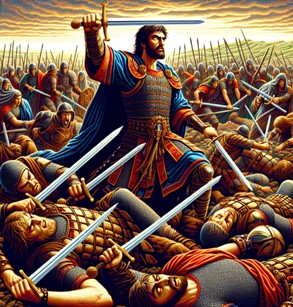 We read here that, in God’s wrath, He will “punish” the people “by the sword, by famine, and by pestilence.” Earlier we saw how Miriam became leprous due to God “departing”, leaving her desolate of His protection. When we apply that same principle here we see the same outcome when God departs (hides His face) and reluctantly permits evil things to happen. But what about this punishment by “the sword”? This is executed by God giving them over to their enemies:
We read here that, in God’s wrath, He will “punish” the people “by the sword, by famine, and by pestilence.” Earlier we saw how Miriam became leprous due to God “departing”, leaving her desolate of His protection. When we apply that same principle here we see the same outcome when God departs (hides His face) and reluctantly permits evil things to happen. But what about this punishment by “the sword”? This is executed by God giving them over to their enemies:
“And I will bring a sword against you that will execute the vengeance of the covenant; when you are gathered together within your cities I will send [reluctantly permit] pestilence among you; and you shall be delivered into the hand of the enemy.” (Leviticus 26:25, words in brackets added)
Clearly, God doesn’t wield a sword and go around slicing people up. Yet when His people totally reject Him and His protection, He is forced to depart (withdraw His protection) which inherently results in enemy nations coming in to have their way. This is exactly what God meant when He warned of Egypt and Jerusalem being punished “by the sword, by famine, and by pestilence” back in Jeremiah chapter 44:
“And this shall be a sign unto you, saith the LORD, that I will punish you in this place, that ye may know that My words shall surely stand against you for evil: Thus saith the LORD; Behold, I will give Pharaohhophra king of Egypt into the hand of his enemies, and into the hand of them that seek his life; as I gave Zedekiah king of Judah into the hand of Nebuchadrezzar king of Babylon, his enemy, and that sought his life.” (Jeremiah 44:29-30)
God is being absolutely clear as to how His wrath works. The people had chosen “other gods” therefore God gave them over to those gods. In doing so, they had broken the hedge of protection resulting in their enemies that were already seeking their lives to come in and conquer. Again, all the evils that were coming upon them were the result of God not being among them. In other words, His restraining power will be in a measure removed from the agencies of evil, so that a train of circumstances will arise which will punish sin with sin. This principle is vital to understand when dealing with God’s wrath.
- The people had sinned by accepting the false gods of the enemy nations.
- In doing so, God’s presence was forced to depart from them, giving them over to their enemy.
- This permitted the enemy nations, already poised to kill them, to infiltrate and conquer.
- Thus, God’s wrath resulted in the sinful ways of the nations to punish the sins of His wayward people.
- This shows once again that death does not directly come from God but that “The wages of sin is death” (Romans 6:23). Or, as the Weymouth New Testament says, “the wages paid by Sin are death.”
We can see this same process at work in the book of Judges:
"And the people of Israel did what was evil in the sight of the Lord and served the Baals. And they abandoned the Lord, the God of their fathers, who had brought them out of the land of Egypt. They went after other gods, from among the gods of the peoples who were around them, and bowed down to them. And they provoked the Lord to anger. They abandoned the Lord and served the Baals and the Ashtaroth. So the anger of the Lord was kindled against Israel, and He GAVE THEM OVER to plunderers, who plundered them. And He SOLD THEM INTO THE HAND OF THEIR SURROUNDING ENEMIES, so that they could no longer withstand their enemies." (Judges 2:11-14)
This same principle is found here:
“The Chaldeans are coming to fight and to fill those houses with the dead bodies of the people that I [God] have struck down in My anger and wrath, for I have hidden My face from this city because of all their wickedness." (Jeremiah 33:5)
Yet again we see God’s “anger and wrath” expressed by Him hiding His face (withdrawing His protection), which results in enemy nations (the Chaldeans) to infiltrate and conquer. Although it is worded as God directly doing the striking— “I have struck down”, it is important to understand that this is a typical Hebrew idiom where God is said to “do” that which He reluctantly “permits.”
“All those who have read the Scriptures with care and attention, know well that God is frequently represented in them as doing what he only permits to be done. So because a man has grieved his Spirit and resisted his grace he withdraws that Spirit and grace from him …” (Adam Clarke, Clarke’s Commentary on the Whole Bible)
“All who are conversant in the language of the Old Testament know, that it speaks of every event which God permits, as proceeding directly from him …” (Richard Graves, Lectures on the Four Last Books of the Pentateuch, p. 194)
“A study of the Bible shows us that God is only said to destroy when He removes His protective presence from the recipient of destruction (Psalm 145:20; Isa 64:6-7; 43:25-28; 2 Kings 13:22-23; Prov 1:24-28; Hosea 5:6). He is said to destroy when He ‘gives people up’ and allows their enemies to destroy them (Isa 34:2; 2 Chron 12:5-7; Hosea 11:8-9; Eze 21:31). Therefore, when reading any Bible passage, especially in the Old Testament, that appears to teach that God personally engaged in destructive behavior, it is best to interpret it in the permissive rather than in the causative … The ‘hiding’ of God’s face is defined in Scripture as the removal of His divine protection, thus allowing whatever forces of evil already poised to destroy to have their way (Num 6:24-27; Deut 31:16-18; Isa 59:1-2).” (Troy Edwards, vindicatinggod.org)
Earlier we saw how God, in wrath, was often forced to "depart" from Judah (Jerusalem) who were unwilling to receive His protection. In the first year of King Hezekiah's reign, he reminded the people of their past by saying:
"Our fathers have trespassed and done evil in the eyes of the Lord our God; they have forsaken Him, have turned their faces away from the dwelling place of the Lord, and turned their backs on Him ... Therefore the wrath of the Lord fell upon Judah and Jerusalem, and He has GIVEN THEM UP to trouble, to desolation, and to jeering, as you see with your eyes. For indeed, because of this our fathers have fallen by the sword; and our sons, our daughters, and our wives are in captivity." (2 Chronicles 29:6,8-9)
The enemy that infiltrates can also be Satan himself. When Job’s faith in God waivered and he feared about bad things that could happen to him and his family (Job 1:5), Satan gained access into Job’s life (Job 1:6-12). After calamity struck, Job confessed:
“For the thing which I greatly feared is come upon me, and that which I was afraid of is come unto me. I was not in safety, neither had I rest, neither was I quiet; yet trouble came.” (Job 3:25-26)
The Septuagint (the Greek translation of the Hebrew Scriptures) translates the word “trouble” in that last phrase as, “yet wrath came upon me.” God had departed (removed His protection), permitting Satan to infiltrate and directly cause the trouble (wrath) that Job was experiencing. In Job 1:16, we read that Satan caused a fire to burn up all of Job’s sheep and servants. However, one Job’s servants said it was, “The fire of God." Like many people today, because of their misunderstanding of God’s true character, their fear had deceived them into believing God had fully abandoned them, thus this destructive fire was wrongly attributed to God.
Another example of this is found in 2 Samuel where we read, “Again the anger of the LORD was aroused against Israel, and He moved David against them to say, ‘Go, number Israel and Judah’” (2 Samuel 24:1). However, referring to this same incident, we also read, “Now Satan stood up against Israel, and moved David to number Israel” (1 Chronicles 21:1). This is NOT a contradiction. When David committed to doing this sin, “the anger of the LORD was aroused” and He departed. This permitted David to be fully taken over by the leader he had chosen— Satan.
God’s Wrath = Visiting the Iniquities of the Fathers
Referring to the making of idols, God says:
“Thou shalt not bow down thyself to them, nor serve them: for I the LORD thy God am a jealous God, visiting the iniquity of the fathers upon the children unto the third and fourth generation of them that hate me.” (Exodus 20:5)
The Hebrew word for “visiting” here is פְקַד (paqad), which is the same Hebrew word for “punish” in the above Scripture we previously read from in Jeremiah chapter 44. In fact, take a look at Exodus 20:5 in the Good News Translation:
“Do not bow down to any idol or worship it, because I am the LORD your God and I tolerate no rivals. I bring punishment on those who hate me and on their descendants down to the third and fourth generation.” (Ex. 20:5, Good News Translation)
As a side not, although I used this version to bring out the word “punishment”, it seemingly distorts the use of the word “jealous”—”I tolerate no rivals”— and implies the worship of anything or anyone else makes Him jealous of that competition for worship. However, “God is not jealous of the idol in the sense that He feels the loss of something the idol is receiving instead of Him getting it. His jealousy is His concern for the one bowing and looking to another source for what he needs when only God can provide it” (see, characterofgod.org/A Jealous God).
Nevertheless, how does God visit (or punish) the descendants of the people to the third and fourth generation? Clearly, it would not be fair to directly punish someone else for another’s iniquity as God says in Ezekiel 18:20. So how does the “punishment” or “visitation” reach that far? Simply by God reluctantly permitting the natural consequences of such a sin to affect each generation after. In other words, the punishment naturally built into the sin of the first generation will fester (i.e., have a snowball effect) unto the third and fourth generation.
We find the same Hebrew word for "punish" (paqad) in Hosea 4:9 where God says of the tribe of Ephraim, "I will punish [visit] them for their ways." How will He do it? "Ephraim is joined to idols: let him alone" (Verse 17). The meaning is clear: "I will punish [let him alone/give them over to] their ways." Thus, once again we see the sure results of sin punishing sin. It is God’s way of showing us that sin is self-destructive.
“When most people read about ‘wrath’ in the Bible, they think of the ‘wrath of God.’ They think of God’s anger directed toward sinful human beings … But this is not what the Bible teaches about wrath … Wrath is the devastating and destructive consequences of sin that fall upon humanity because we sin. Wrath does not come from God; wrath comes from sin. Sin bears its own punishment with it, and Paul calls it ‘wrath.’ When we sin, there are natural consequences that result, and these consequences destroy, hurt, harm, kill, ruin, and damage humans, animals, climate, relationships, government, culture, society, economics, and every other aspect of this world. Wrath is a fire that destroys everything it touches, and the fire of wrath is sparked by human desire that leads to human violence. The assassination of Archduke Ferdinand led to Word War I, which caused the mistreatment of the German people, which led to the rise of Adolph Hitler and World War II. One act of human violence led to the death and misery of millions. This is wrath. It is a contagion that starts with a spark and spreads to destroy countless lives.” (Jeremy Myers, What is Wrath? redeeminggod.com)
This principle works the other way around as well. Many people are perplexed when they read of God commanding and directing His people to infiltrate other nations and kill men, women, and even babies:
“Now go and attack Amalek, and utterly destroy all that they have, and do not spare them. But kill both man and woman, infant and nursing child, ox and sheep, camel and donkey.’” (1 Samuel 15:3)
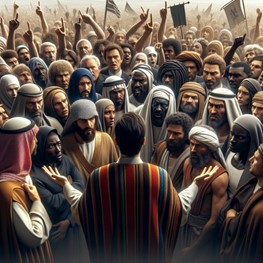 Could this really be a case of God permitting sin to punish and destroy sin? If so, then isn’t God commanding His people to commit sin? When God “commands” His people to resort to such violence, He is NOT alluding to the idea that this is His ideal plan or demonstrating His divine justice. The men of Israel had continuously shown their reliance on the sword instead of submitting to God’s way. In “commanding” them to use the sword against the other nations, God, in His wrath, was reluctantly giving them over to their own justice system. Remember, the people had demanded, “We will have a king over us; that we also may be like all the nations; and that our king may judge [govern] us, and go out before us, and fight our battles” (1 Samuel 8:19-20). Not only were they constantly mingling and worshiping the idols of the nations, but they had chosen to fight battles “like all the nations.” God had said, “You will succeed, not by military might or by your own strength, but by My spirit” (Zechariah 4:6), but they chose the sword (military might) over God’s ways. Therefore, God gave them over to their own ways by “commanding” them to do just what they wanted:
Could this really be a case of God permitting sin to punish and destroy sin? If so, then isn’t God commanding His people to commit sin? When God “commands” His people to resort to such violence, He is NOT alluding to the idea that this is His ideal plan or demonstrating His divine justice. The men of Israel had continuously shown their reliance on the sword instead of submitting to God’s way. In “commanding” them to use the sword against the other nations, God, in His wrath, was reluctantly giving them over to their own justice system. Remember, the people had demanded, “We will have a king over us; that we also may be like all the nations; and that our king may judge [govern] us, and go out before us, and fight our battles” (1 Samuel 8:19-20). Not only were they constantly mingling and worshiping the idols of the nations, but they had chosen to fight battles “like all the nations.” God had said, “You will succeed, not by military might or by your own strength, but by My spirit” (Zechariah 4:6), but they chose the sword (military might) over God’s ways. Therefore, God gave them over to their own ways by “commanding” them to do just what they wanted:
“Therefore speak to them, and say to them, ‘Thus says the Lord God: ‘Everyone of the house of Israel who sets up his idols in his heart, and puts before him what causes him to stumble into iniquity, and then comes to the prophet, I the Lord will answer him who comes, according to the multitude of his idols, that I may seize the house of Israel by their heart, because they are all estranged from Me by their idols.’” (Ezekiel 14:4-5)
Let’s apply this to Israel’s warfare:
- Israel demands an earthly king to fight their battles like all the other nations (1 Samuel 8:19-20).
- In His wrath, God gives them a king with the characteristics they desired (Hosea 13:11).
- God did not desire Israel to take over the land through force, violence, and warfare (Zechariah 4:6; 2 Corinthians 10:3-5).
- Since the people were determined to fight using force, violence, and warfare, God gave them over to their own desires and commanded them to do “according to the multitude of [their] idols” (Ezekiel 14:4). Or, as The Septuagint says, “according to the things in which his [their] mind is entangled.”
- God does this in order to “seize [recapture/turn/prick] the house of Israel by their heart [conscience]” (Ezekiel 14:5).
I call this the Romans 5:20 principle where God, in order to get humanity to “awake to righteousness, and sin not” (1 Corinthians 15:34), He must cause our sin to abound so we might see how sinful we really are and then turn to Him to receive His grace which much more abounds.
After Peter “drew his sword, struck the servant of the high priest, and cut off his ear” (Matthew 26:51), Jesus rebuked him saying, “Put your sword in its place, for all who take the sword will perish by the sword” (Verse 52). Because His people kept relying upon earthly weapons of force, God, in His wrath, was forced to give them over to the sword:
“Yet they tested and rebelled against the Most High God and did not keep His testimonies, but turned away and acted treacherously like their fathers; they twisted like a deceitful bow. For they provoked Him to anger with their high places; they moved Him to jealousy with their idols. When God heard, He was full of wrath, and He utterly rejected Israel. He forsook His dwelling at Shiloh, the tent where He dwelt among mankind, and delivered His power to captivity, His glory to the hand of the foe. He gave His people over to the sword and vented His wrath on His heritage.” (Psalm 78:65-62)
This concept may sound confusing or that I am twisting things to fit my own personal ideology, but to go into greater detail of this I ask that you read the article entitled, Didn’t God Command the Israelites to Slaughter Men, Women, and Children With the Sword?
There’s one more story in this category we will briefly discuss found in Numbers chapter 25:
“Now Israel remained in Acacia Grove, and the people began to commit harlotry with the women of Moab. They invited the people to the sacrifices of their gods, and the people ate and bowed down to their gods. So Israel was joined to Baal of Peor, and the anger of the Lord was aroused against Israel. Then the Lord said to Moses, ‘Take all the leaders of the people and hang the offenders before the Lord, out in the sun, that the fierce anger of the Lord may turn away from Israel.’ So Moses said to the judges of Israel, ‘Every one of you kill his men who were joined to Baal of Peor.’” (Numbers 25:1-5)
 So, not only did God reluctantly permit other nations to kill His wayward people, and His wayward people to kill other nations, but it appears that God even “commanded” His own people to kill His own wayward people. When reading these stories superficially, it is no wonder that atheists mock us and view God as a genocidal dictator.
So, not only did God reluctantly permit other nations to kill His wayward people, and His wayward people to kill other nations, but it appears that God even “commanded” His own people to kill His own wayward people. When reading these stories superficially, it is no wonder that atheists mock us and view God as a genocidal dictator.
When Adam sinned, he told God, “The woman whom You gave to be with me, she gave me of the tree, and I ate” (Genesis 3:12). Not only is Adam shifting the blame to Eve, but also upon God who had created her. According to Adam’s sinful mind, if anyone had to pay for their sins it should be one of them. Here is the birth of that dangerous doctrine called Penal Substitutionary Atonement.
Forward a couple thousand years and we see Israel mingling with the women of Moab and participating in “the sacrifices of their gods.” In these sacrifices was the desire to appease the angry gods of the nations that demanded bloodshed in order to forgive.
Such ideology was in complete contrast to the ways of the one true God who freely forgives— “Sacrifice and offering You did not desire; My ears You have opened. Burnt offering and sin offering You did not require” (Psalm 40:6).
As we look into the face of our Father as He speaks the words, “Take all the leaders of the people and hang the offenders before the Lord,” do we dare attempt to discern its meaning without the life of Christ, the mediator? As the people come to Him in accordance with the false justice system of the gods they sacrifice to, God answers them “according to the things in which [their] mind is entangled.” God is required by the people to assume the character of a judge, demanding the people offer Him a human sacrifice to appease Him. As faulty as it is, they need to see “justice” served before they can believe their killer God is appeased. God has no choice but to give over the offenders to death, because this is the process of atonement they understand.
This was the only way in which the people would accept mercy; a sacrifice or Penal Substitution was required. The whole nation had been involved in the feast, but those most notable in encouraging them to evil were now hung up in the sight of the people as a plague broke out— “They joined themselves also to Baal of Peor, and ate sacrifices made to the dead. Thus they provoked Him to anger with their deeds, and the plague broke out among them” (Psalm 106:28-29); “And those who died in the plague were twenty-four thousand” (Numbers 25:9). As in the cases of the plagues of Egypt and Miriam, the connection between God’s “anger” and the “plague” reveals that God had “departed”, leaving the people to themselves without His protection.
As the people looked upon the men hung up before the sun (like the process of looking up to the bronze serpent in Numbers 21 to be healed from the “fiery serpents”), the people could begin to believe that God would forgive them so they could be healed of the plague that had broken out.
While the plague was striking terror through the camp, Zimri (one of the princes of Israel) brought Cosbi (a Midianite woman) into the middle of the camp, in the sight of the corpses hanging in the air, intending to have sex with her (Numbers 25:6). Although many in the camp had sinned, the actions of this man provided a lightning rod for human justice to manifest itself. Zimri became a sin-bearer (a scapegoat), not only for himself but for the entire nation. When Phinehas (which means mouth of a serpent, other variants include mouth of brass/bronze) saw the brazen actions of Zimri, his sense of justice was aroused. While Israel was stricken with fear and plague for their sins, this wicked man flouted his sin before them. Phinehas, following the principles of human justice and judgment (mouth of the serpent), took a javelin and killed Zimri and Cosbi in the act of sexual intercourse. This felt right to the nation, and they believed it would satisfy God’s justice (though it was actually human justice, projected onto God, that was appeased). It was after this act that the plague was stopped (Verses 7-9).
God then placed a blessing on Phinehas in the following way:
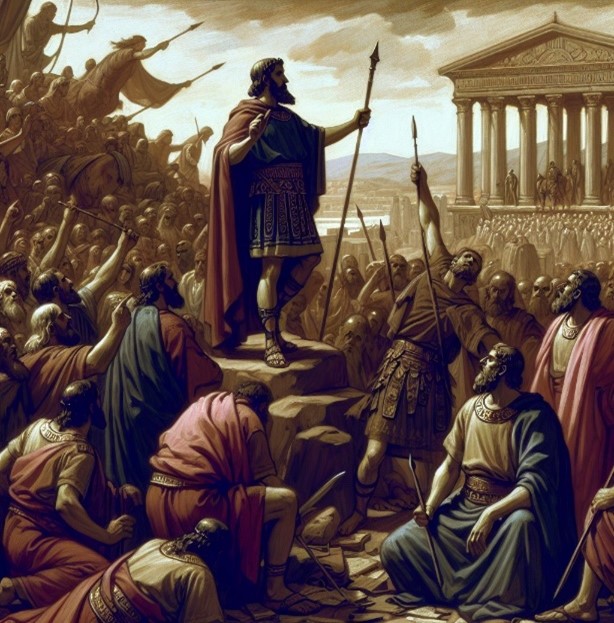 “Phinehas the son of Eleazar, the son of Aaron the priest, has turned back My wrath from the children of Israel, because he was zealous with My zeal among them, so that I did not consume the children of Israel in My zeal. Therefore say, ‘Behold, I give to him My covenant of peace; and it shall be to him and his descendants after him a covenant of an everlasting priesthood, because he was zealous for his God, and made atonement for the children of Israel.’” (Numbers 25:11–13)
“Phinehas the son of Eleazar, the son of Aaron the priest, has turned back My wrath from the children of Israel, because he was zealous with My zeal among them, so that I did not consume the children of Israel in My zeal. Therefore say, ‘Behold, I give to him My covenant of peace; and it shall be to him and his descendants after him a covenant of an everlasting priesthood, because he was zealous for his God, and made atonement for the children of Israel.’” (Numbers 25:11–13)
In the action of killing Zimri and Cosbi, Phinehas made “atonement” for Israel. Just as healing came to Israel by looking to the bronze serpent (a symbol of Satan, Revelation 12:9) in Numbers 21, now Israel was healed by the mouth of the serpent bringing appeasement to God for Israel. This was an atonement process which they understood. Israel could not have believed that God would forgive them until Zimri was dead, because human/satanic justice demands death before forgiveness can occur— “without the shedding of blood there is no forgiveness of sins” (Hebrews 9:22, English Standard Version).
We notice the process by which Phinehas obtained an everlasting priesthood; he offered a human sacrifice by which God was appeased. This is exactly how the Christian world wrongly views Christ in the Penal Substitutionary Atonement process. They teach that Christ offered Himself as a human sacrifice to appease God’s wrath. And, since He was raised from the dead, He obtained an everlasting priesthood.
“And in another passage God said to Him, “You are a priest forever in the order of Melchizedek.” (Hebrews 5:6)
“But because Jesus lives forever, His priesthood lasts forever.” (Hebrews 7:24)
God blessed Phinehas because Israel needed a mediator to intercede for them. Aaron had died and Phinehas takes a central role as the priest of the people. All of this process is satisfying the wrong perceptions of the people, but there is no other way for God to reach them; so, (like the anointing of King Saul) God blesses Phinehas according to the desire of the people. If Phinehas had not done what he did, Israel would have remained under the perceived condemnation of God as they understood it. They would not have been able to believe God would forgive them.
no forgiveness of sins”, but rather it is man who believes this, and he can’t believe God
will forgive him unless he does a sacrifice
Like the men of Israel who hung the offenders before the Lord, man needed Christ to die because to us in our natural state (warped thinking) there can be no forgiveness without punishment. For us to accept the forgiveness of God, the human race had to see Jesus die.
Going back to the article from the Christian Coalition, the author writes: “Jesus came to save his people from God’s wrath.” He then explains this process in the following words:
“Truly, the wrath of God is not the main message of the gospel, but the biblical gospel cannot be understood apart from it. On the cross, God the Son bore the full weight of divine judgment, even as he volunteered himself—in eternity and time—to drink the full cup of God’s wrath (Psa. 75:8). As we learn from his prayers in Gethsemane, there was no other way for wrath to be removed, but through his death on the cross (Matt. 26:39, 42). For all those who trust in Christ, this punishment is removed. For those who refuse Christ, God’s wrath remains (John 3:36; Rom. 2:6).”
According to this understanding, Jesus did not really come to “save His people from their sins” (Matthew 1:21) that inherently kill them (James 1:14-15), but to save His people from God who seeks to kill them! This sounds more like domestic violence where we have an angry Father who seeks to kill His wayward children whose anger is appeased as Jesus, our older brother, steps in to absorb the Father’s wrath in our stead.
However, salvation isn’t about God loving us so much that He decided to unleash all His wrath and fury upon Jesus, killing Him instead of us. No! It’s about God loving us so much that He gave His only begotten Son over to US and allowed US to unleash all OUR wrath and fury upon Him. Jesus didn't die to appease God’s wrath and satisfy His justice, He died to appease OUR wrath and satisfy OUR justice. It was the only way to break Satan’s (the serpent's) “spell” over us.
Going back to Hebrews 9:22, I purposefully quoted the English Standard Version which reveals man’s understanding of the atonement. The Greek text does not say “forgiveness of sins.” The word is ἄφεσις (aphesis) which, although can carry the meaning of “pardon, complete forgiveness”, is actually “Derived from the Greek verb ἀφίημι (aphiēmi), meaning ‘to send away’ or ‘to release’” (Strong’s Concordance). The King James Version says it this way, “without shedding of blood is no remission.”
It is often understood as “forgiveness of sin” because that’s “according to the things in which [our] mind [is] entangled”, and seeing blood releases us from that which our mind is entangled. Thus, the entanglement [the lie of believing God demanded blood] goes into remission. This can be connected to the concept of “complete forgiveness” because true forgiveness is NOT a penal-legal matter but about healing. As already mentioned, this “remission” is “derived from the Greek verb ἀφίημι (aphiēmi)”, which, if you were to read the booklet, Biblical Forgiveness, you will see is not about forgiveness granted (charizomai) but a forgiveness (remedy/healing) that is accepted and received by the one whose sins are already forgiven (charizomai). (See also my article entitled, If Sin is Not a Legal Matter But a Deadly Disease, Why Do We Need Forgiveness?).
Isaiah prophesied that man would misinterpret why Jesus had to die— “Surely He has borne our griefs and carried our sorrows; Yet we esteemed [wrongly assumed] Him stricken, smitten by God, and afflicted” (Isaiah 53:4). This is why seeing Christ shed His blood was designed to release (satisfy) us from our faulty view, not only of God’s wrath, but also of the atonement— “for by His stripes [wounds] we are healed” (Isaiah 53:5). Please see my book entitled, Did God Kill Jesus Instead of Killing Us? as well as my article, Why Did God Institute Animal Sacrifices?
The Wrath of the Lamb
“And the heaven departed as a scroll when it is rolled together; and every mountain and island were moved out of their places. And the kings of the earth, and the great men, and the rich men, and the chief captains, and the mighty men, and every bondman, and every free man, hid themselves in the dens and in the rocks of the mountains; And said to the mountains and rocks, Fall on us, and hide us from the face of Him that sitteth on the throne, and from the wrath of the Lamb: For the great day of His wrath is come; and who shall be able to stand?” (Revelation 6:14-17)
 Referring once again to the Gospel Coalition article we read, “For all those who trust in Christ, this punishment is removed. For those who refuse Christ, God’s wrath remains (John 3:36; Rom. 2:6).” Before we discuss these two Scripture passages, we can see, by comparing this to the above quote from the book of Revelation, that “God’s wrath” which remains on those who reject Christ is labelled “the wrath of the Lamb” in the end. If we were to accept the teachings of this article, since the Lamb is symbolic of Jesus (John 1:29; 1 Peter 1:18, 19), then we are forced to conclude that this wrath is directly coming from Jesus taking vengeance on those who have rejected Him.
Referring once again to the Gospel Coalition article we read, “For all those who trust in Christ, this punishment is removed. For those who refuse Christ, God’s wrath remains (John 3:36; Rom. 2:6).” Before we discuss these two Scripture passages, we can see, by comparing this to the above quote from the book of Revelation, that “God’s wrath” which remains on those who reject Christ is labelled “the wrath of the Lamb” in the end. If we were to accept the teachings of this article, since the Lamb is symbolic of Jesus (John 1:29; 1 Peter 1:18, 19), then we are forced to conclude that this wrath is directly coming from Jesus taking vengeance on those who have rejected Him.
In an article on christianstudylibrary.org, Wybren H. Oord writes:
“While we may tend to downplay the wrath of the Lamb of God, the Bible does not let us forget it. Revelation makes clear that, although Christ defers punishment, there comes a time when His patience is exhausted. He waits long — but at last His righteous anger is aroused, and He breaks forth in all the fury of His wrath. The Bible is clear that when the measure of man’s iniquity is full, we shall be ripe for judgment. Sin will have run its course. The enemies of God have attempted their worst. They have united their forces against Him and against His people. Suddenly, like a thief in the night, His anger will break forth like lightning. His indignation will burn like fire. The great day of His vengeance will come. The day of judgment will be upon all those who have stubbornly refused to bow their knees before Christ or confess His lordship over their lives. So great will be the wrath of the Lamb that men will cry out for the mountains to fall upon them and the rocks to cover them. Those who fall under the wrath of the Lamb would rather be annihilated — destroyed completely — than face the wrath of God and the Lamb. Their cries, however, will be fruitless. They will face Him who sits upon the throne. They will acknowledge the Lamb that was slain.”
If I’m understanding this correctly, according to this ideology, “when His [Jesus’] patience is exhausted”, He will finally FORCE “those who have stubbornly refused to bow their knees” to bow their knees and “acknowledge the Lamb [Jesus] that was slain.” A little later in the article, Oord continues:
“This warning is not just for the unbelieving world. It is for those who claim they know God but have failed to acknowledge the Lamb on the throne as the Lord of their lives. They have ignored the gospel call to repent, believe, and be saved … They see the Lamb descend from the throne. They are forced to recognize Him as Lord of lords and King of kings. They will believe and fear, but they will not repent.”
 But is this really what this “wrath” is all about? What have we learned over and over again throughout Scripture about how God expresses anger and wrath? Seeing Jesus (a Lamb) appearing as a wrathful judge seeking to slay those who disobey Him is a sign that man’s view of God is totally insane. In Scripture, a lamb is represented as being a gentle creature. Of Himself, Jesus said, “Take My yoke upon you and learn from Me, for I am gentle [peaceful] and meek in My heart, and you will find rest for your souls” (Matthew 11:29). As Adam and Eve hid in the Garden of Eden, those who cling to the lie about God’s character, “hid themselves in the dens and in the rocks of the mountains.”
But is this really what this “wrath” is all about? What have we learned over and over again throughout Scripture about how God expresses anger and wrath? Seeing Jesus (a Lamb) appearing as a wrathful judge seeking to slay those who disobey Him is a sign that man’s view of God is totally insane. In Scripture, a lamb is represented as being a gentle creature. Of Himself, Jesus said, “Take My yoke upon you and learn from Me, for I am gentle [peaceful] and meek in My heart, and you will find rest for your souls” (Matthew 11:29). As Adam and Eve hid in the Garden of Eden, those who cling to the lie about God’s character, “hid themselves in the dens and in the rocks of the mountains.”
I have previously shown that, since Jesus is the true representation of God’s character, His anger works no different. Remember, as Jesus “looked round about on them [the Pharisees] with anger”, He “grieved for the hardness of their hearts” (Mark 3:5). The Pharisees were watching Jesus closely to see if He would heal upon the Sabbath “that they might accuse Him” (Verse 2). They were seeking His life. Right after He healed the man “the Pharisees went forth, and straightway took counsel with the Herodians against Him, how they might destroy Him” (Verse 6).
Please note this important contrast. Jesus was seeking to heal and restore, while God’s professed people were seeking to kill and destroy. They held this view because that’s how they perceived God’s character towards those who break His so-called rules. Again, their anger and wrath sought to kill, while Jesus’ anger and wrath “grieved for the hardness of their hearts.” Jesus’ anger was not expressed by killing off His enemies— the Pharisees. Jesus plainly asked, “Is it lawful to do good on the Sabbath days, or to do evil? to save life, or to kill?” (Verse 4). Notice the parallelism:
- Do good = save life
- Do evil = to kill
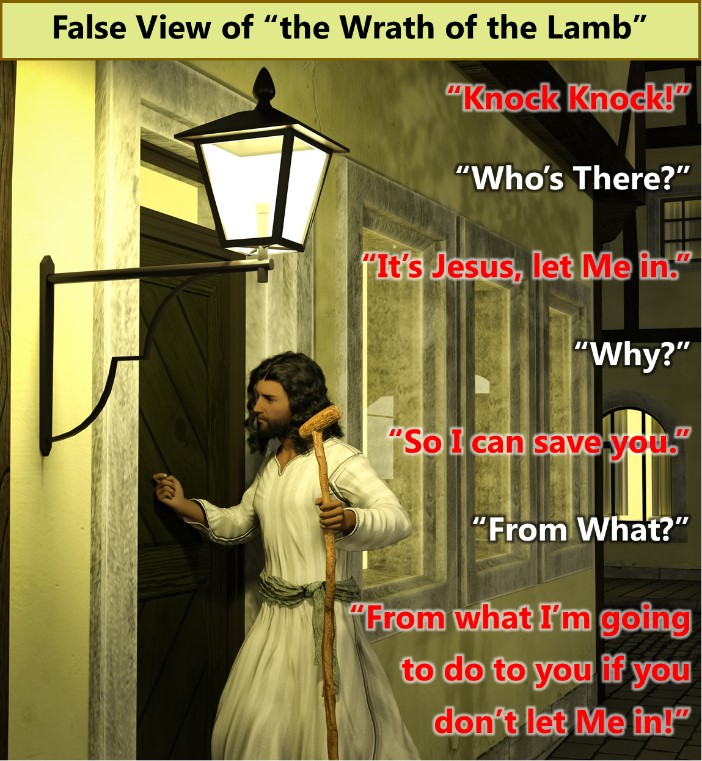 Ask yourself this question: Does God or His Son ever do evil?— “The LORD is just! He is my rock! There is no evil in Him!” (Psalm 92:15, New Living Translation); “… for God cannot be tempted with evil, and He Himself tempts no one” (James 1:13). If your answer is “no’, then you may need to reassess your understanding of God’s wrath!— “Evil [not God] shall slay the wicked: and they that hate the righteous shall be desolate” (Psalm 34:21). (You may also want to read these articles: Did God Create Evil? and Why Does God Say He Will Repent of Doing Evil?).
Ask yourself this question: Does God or His Son ever do evil?— “The LORD is just! He is my rock! There is no evil in Him!” (Psalm 92:15, New Living Translation); “… for God cannot be tempted with evil, and He Himself tempts no one” (James 1:13). If your answer is “no’, then you may need to reassess your understanding of God’s wrath!— “Evil [not God] shall slay the wicked: and they that hate the righteous shall be desolate” (Psalm 34:21). (You may also want to read these articles: Did God Create Evil? and Why Does God Say He Will Repent of Doing Evil?).
Another incident that people refer to is recorded by both Matthew and John (Matthew 21:12-16; John 2:13-17) when after brandishing a whip, Jesus entered the temple and drove out all the corrupt religious leaders and their conspiring money changers. But even here there was no display of violence on the part of Jesus as many falsely claim; for “He had done no violence” declared the prophet of old (Isaiah 53:9). Jesus never struck anyone, and only those with a self-condemning conscience were afraid and ran away. However, the dear little children who had witnessed the event were not afraid and began to sing praises to God while the blind and lame stayed by and were healed. To the corrupt money changers and religious leaders, Jesus seemed judgmental and condemning because that’s how they perceived God to be and thus how they treated others. Thus, in the end, those who perceive Jesus as a vengeful judge and dictator will run and hide from Him just as those who disbelieved in His everlasting mercy (kindness) at the temple. (See the article entitled, Didn’t Jesus Show Violence and Anger When He Kicked the Moneychangers Out of the Temple? for more info on this event).
The ideology which views Jesus’ Kingship in this way was sternly rebuked by Jesus Himself:
“You know that the rulers in this world lord it over their people, and officials flaunt their authority over those under them. But among you it will be different. Whoever wants to be a leader among you must be your servant, and whoever wants to be first among you must become your slave. For even the Son of Man came not to be served but to serve others and to give His life as a ransom for many.” (Matthew 20:25-28)
Again and again we see that God’s wrath is not Him using power to destroy, but the withdrawal of His power which naturally results in destruction. It is true that “He who believes in the Son has everlasting life; and he who does not believe the Son shall not see life, but the wrath of God abides on him” (John 3:36). But in what way? Man’s way or God’s? If man’s way, then we must believe that God will directly kill and destroy the offender. If God’s way, then it will be “in accordance with your hardness and your impenitent heart … treasuring up for yourself wrath in the day of wrath and revelation of the righteous judgment of God, who ‘will render to each one according to his deeds’” (Romans 2:5-6).
Can you see the difference? God rendering to each one according to his deeds is NOT meant to be understood as God practicing “an eye for an eye.” Jesus said, “You have heard that it was said, ‘An eye for an eye and a tooth for a tooth.’ But I tell you not to resist an evil person. But whoever slaps you on your right cheek, turn the other to him also” (Matthew 5:38-39). Not to resist an evil person means “do not reciprocate in like manner.” Remember, Jesus said our heavenly Father “is kind to the unthankful and to the evil” (Verse 35) and Paul said, “the wrath of God is revealed from heaven against all … who … although they knew God, they did not glorify Him as God, nor were thankful” (Romans 1:18,21). How did Paul say God revealed His wrath against them? By giving them over to their own way (verses 24,26,28).
Therefore, in His kindness, God will “render to each one according to his deeds.” In other words, in wrath, God will give the Lost over to their own SELF-DESTRUCTIVE deeds (ways)— “They accepted none of My counsel; they despised all My reproof. So they will eat the fruit of their own way, and be filled with their own devices” (Proverbs 1:30-31).
In Hebrews 2:9 we read that “Jesus … by the grace of God should taste death for every man.” How is it that Jesus tasted death for every man? He felt the anguish which every sinner feels when mercy is rejected by unbelief. Just as Jesus could not sense the abiding presence of His Father on the cross, the Lost in the end will not be able to sense the Father’s presence due to their disbelief in His everlasting mercy. They, as did Christ, will sense they are forsaken. And as we wrongly “did esteem Him stricken, smitten of God, and afflicted”, the Lost in the end will wrongly believe they are “stricken, smitten of God, and afflicted” (Isaiah 53:4). Unlike Christ whose faith stood strong as He breathed His last, the Lost will be given over to their unbelief— this is the wrath which abides on them.
“The LORD is known by the judgment He executes; The wicked is snared in the work of his own hands.” (Psalm 9:16)
“See the one who is pregnant with wickedness, who conceives destructive plans, and gives birth to harmful lies – he digs a pit and then falls into the hole he has made. He becomes the victim of his own destructive plans and the violence he intended for others falls on his own head. I will thank the Lord for His justice; I will sing praises to the sovereign Lord!” (Psalm 7:14-17)
“… I will do to them according to their way, and by their standard of justice I will judge them. Then they will know that I am the LORD!” (Ezekiel 7:27)
 Not exactly the wrath of revengeful destruction we often credit to God’s account is it? Won't you trust Him and take His hand today?
Not exactly the wrath of revengeful destruction we often credit to God’s account is it? Won't you trust Him and take His hand today?
“For God hath not appointed us to wrath, but to obtain salvation by our Lord Jesus Christ.” (1 Thessalonians 5:9)

